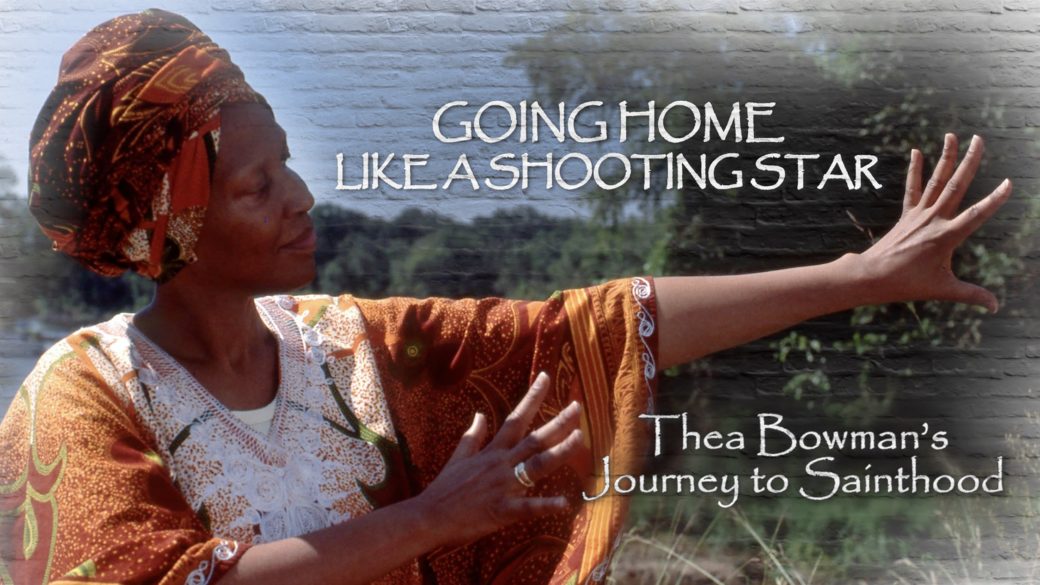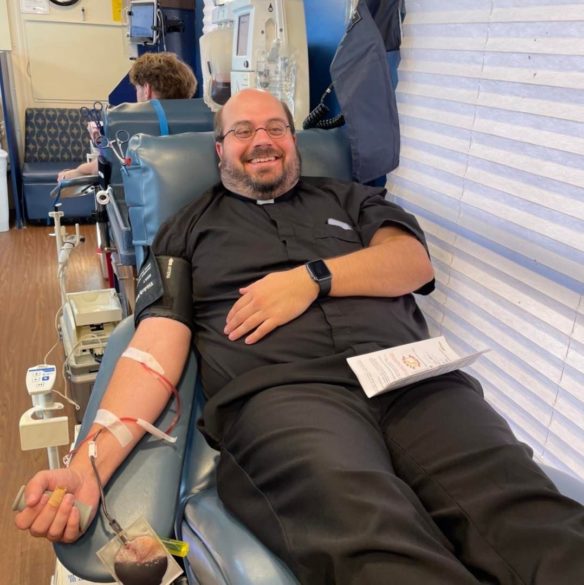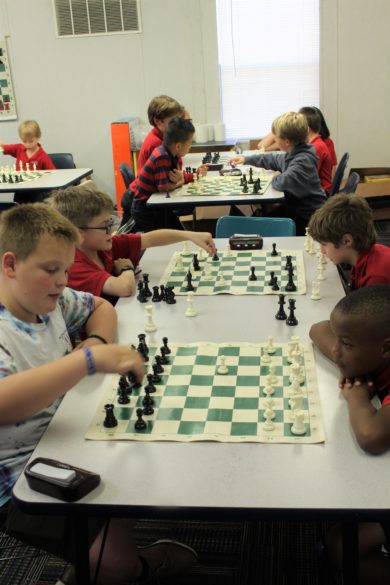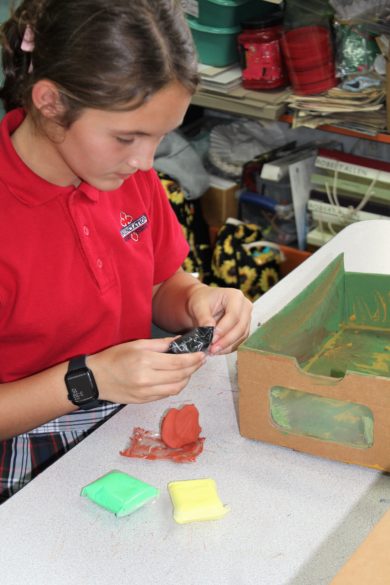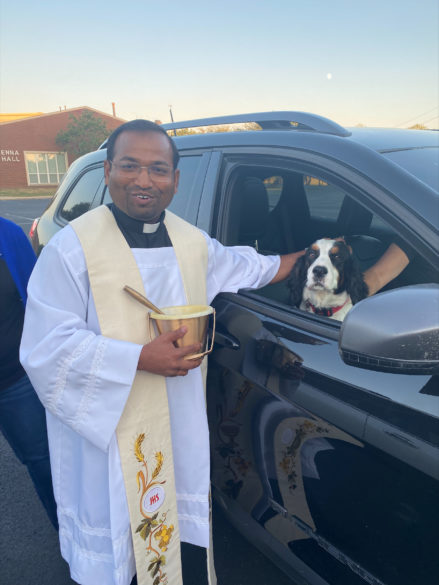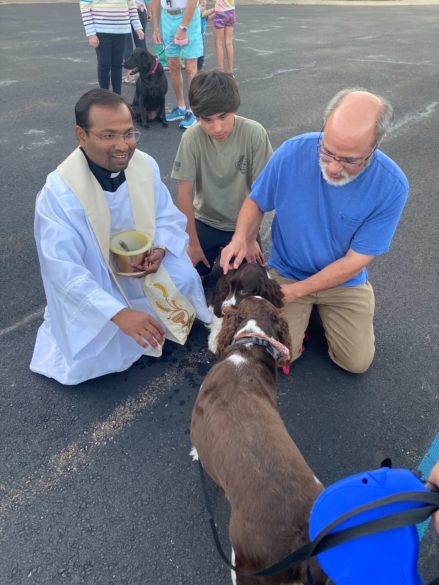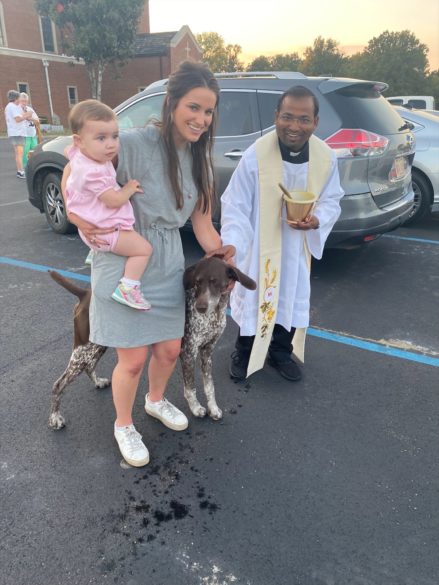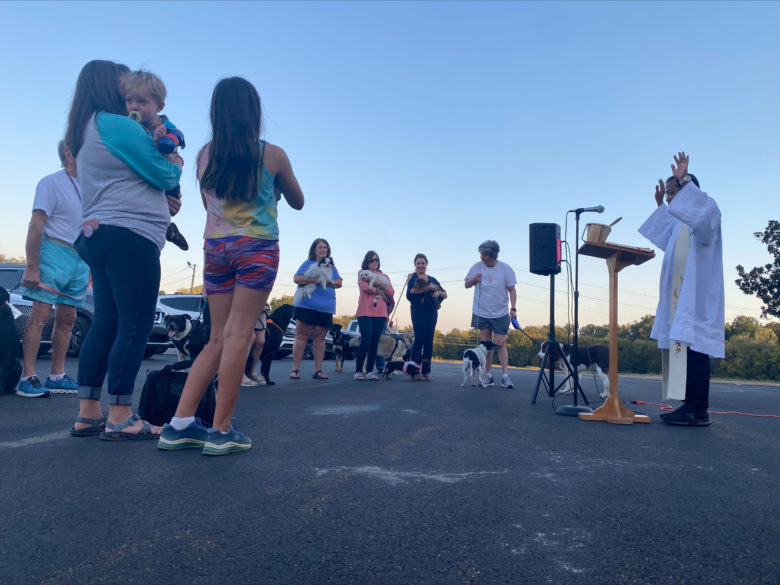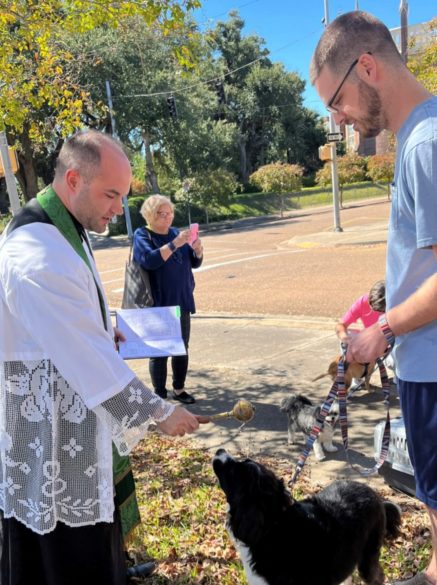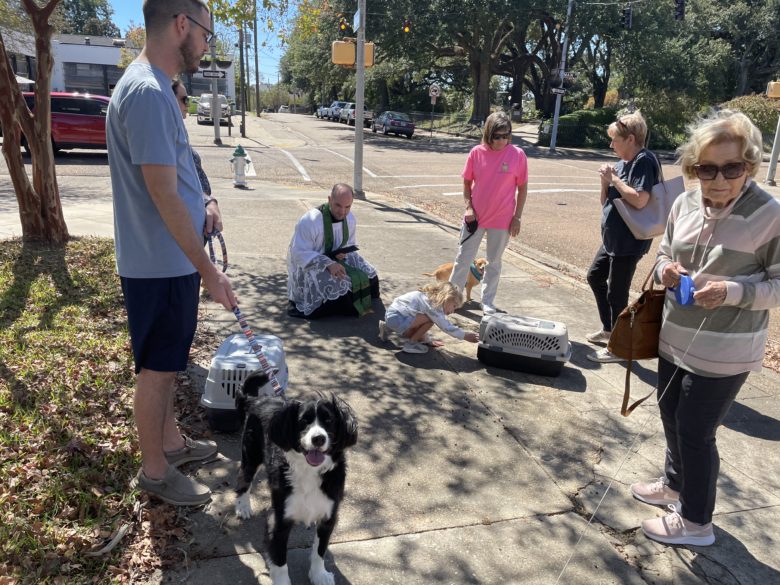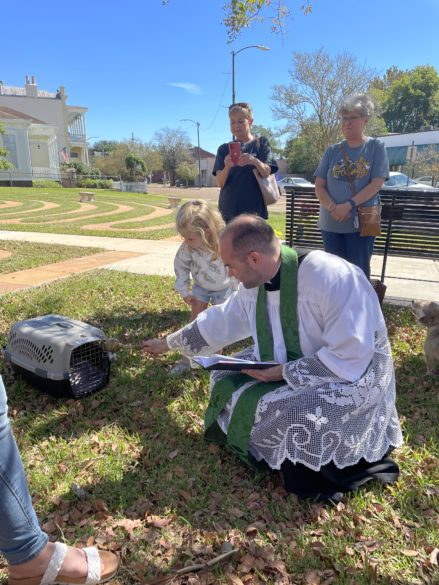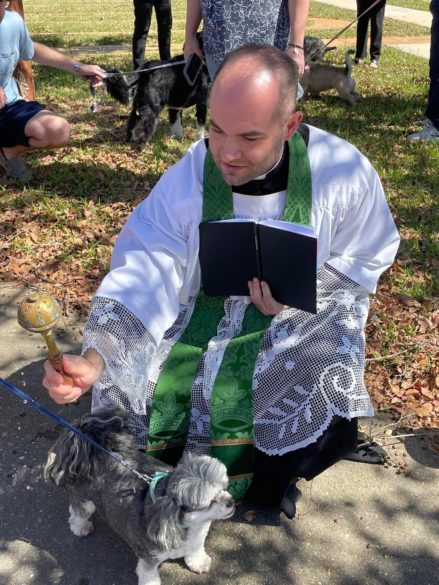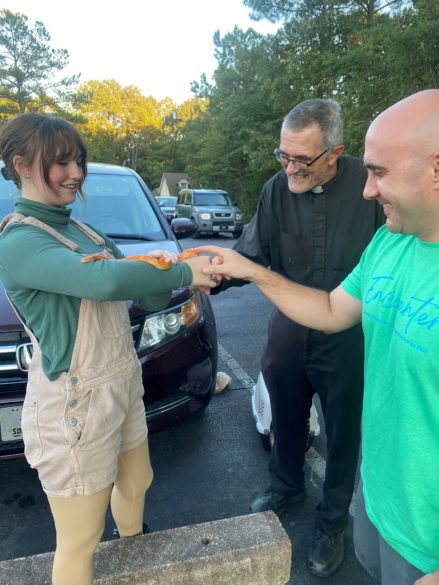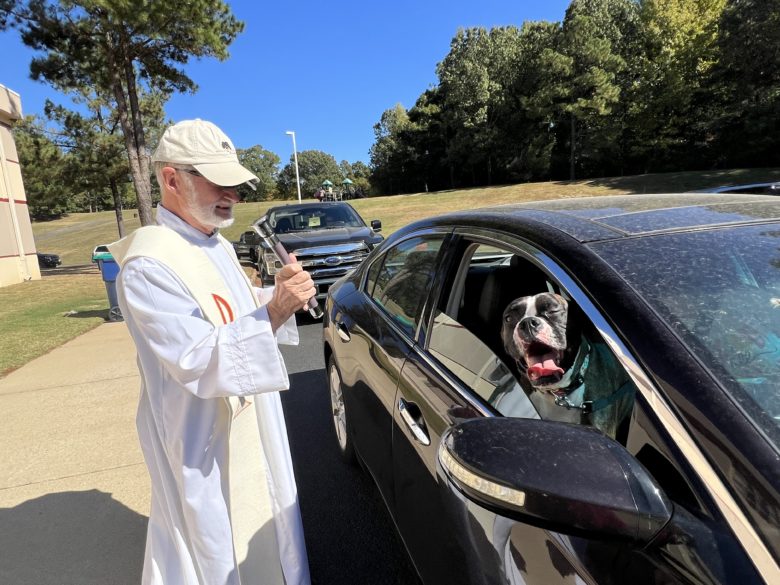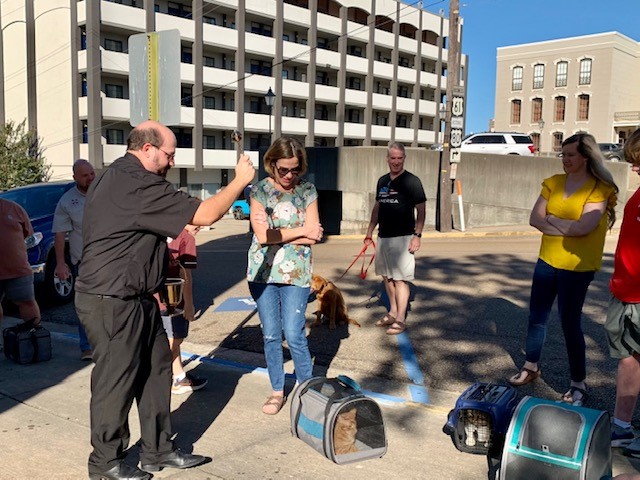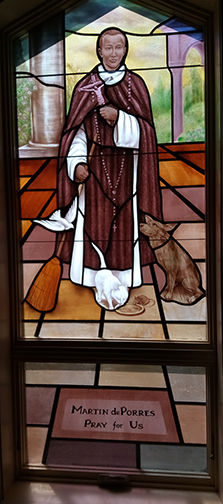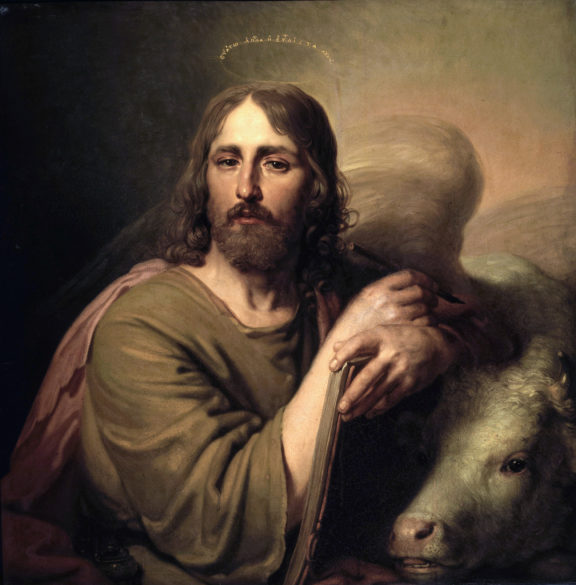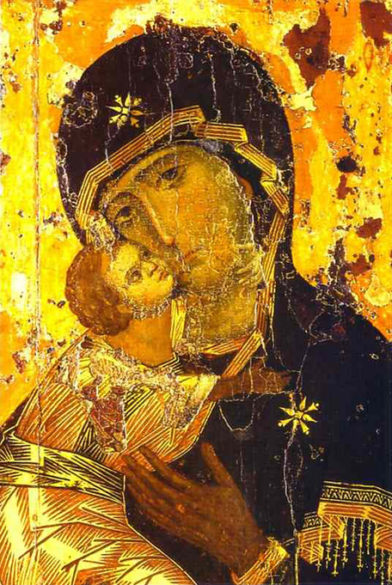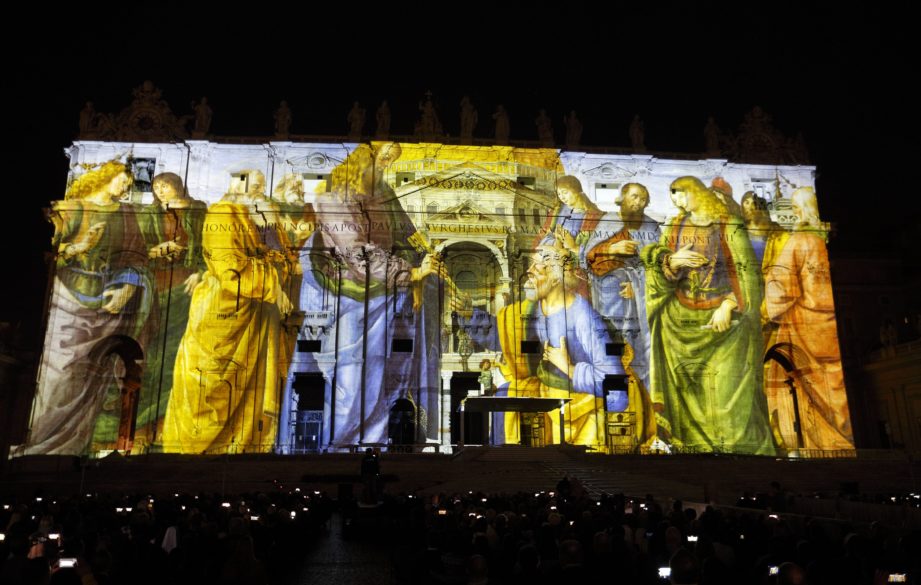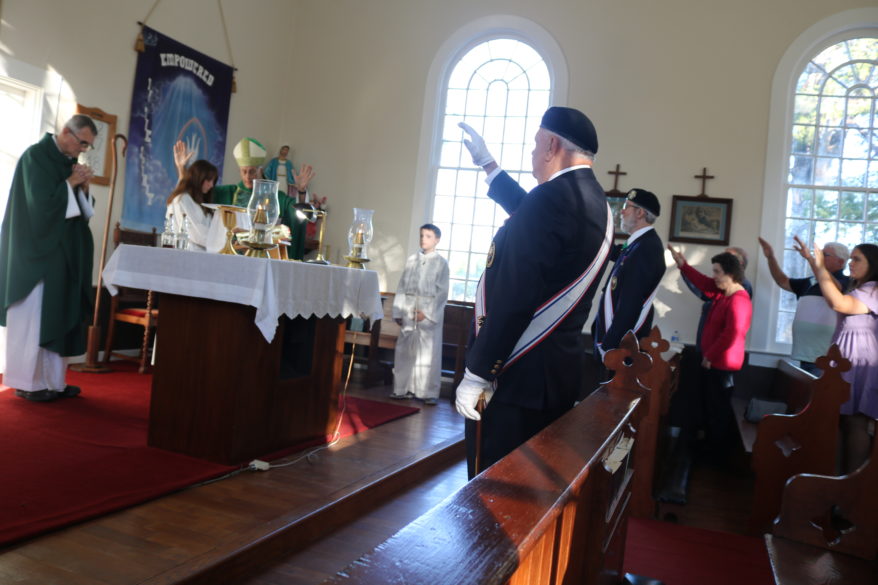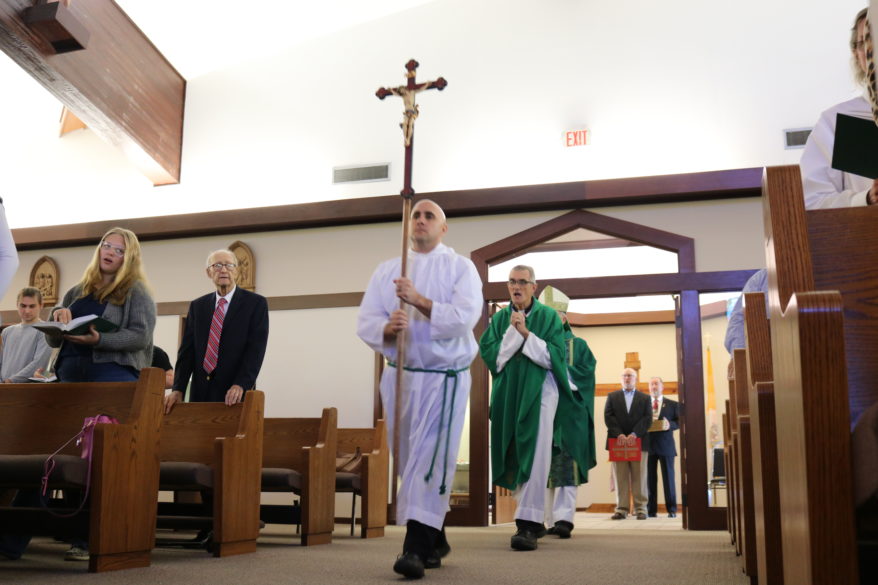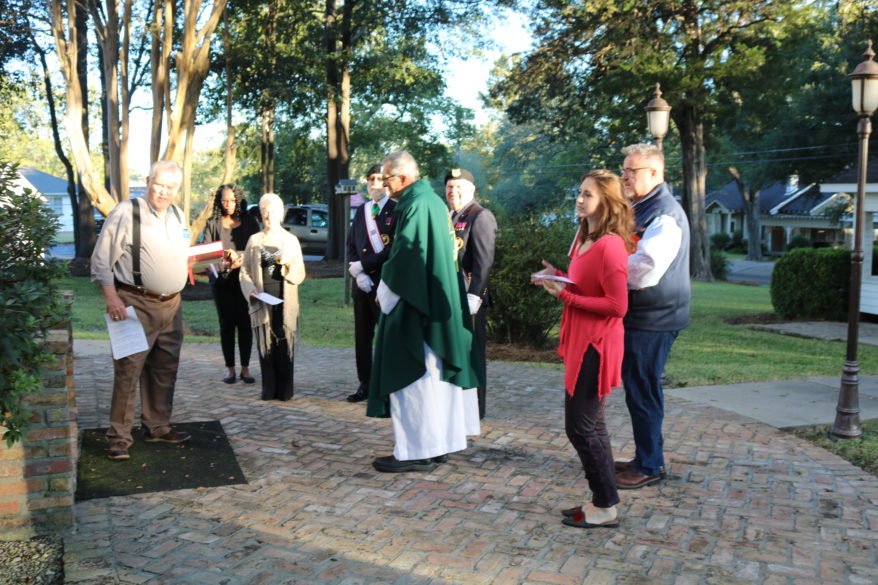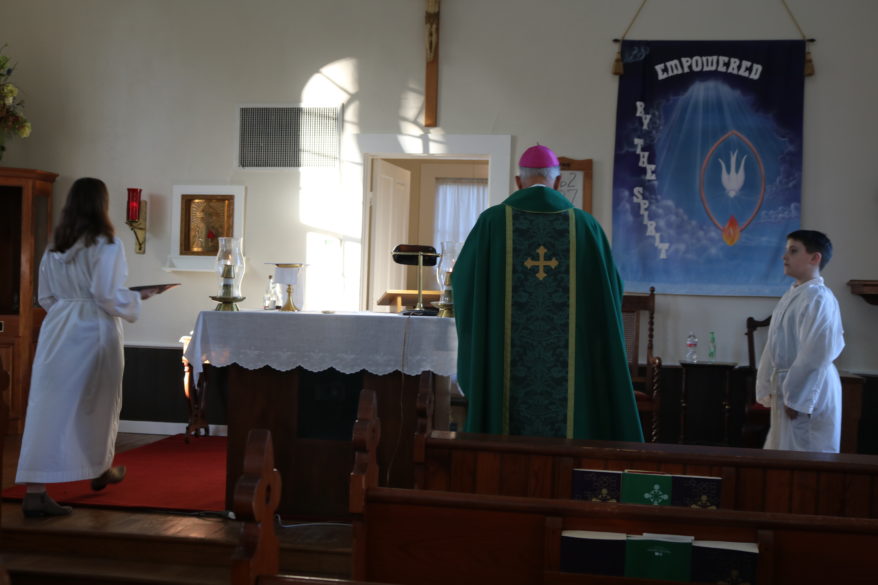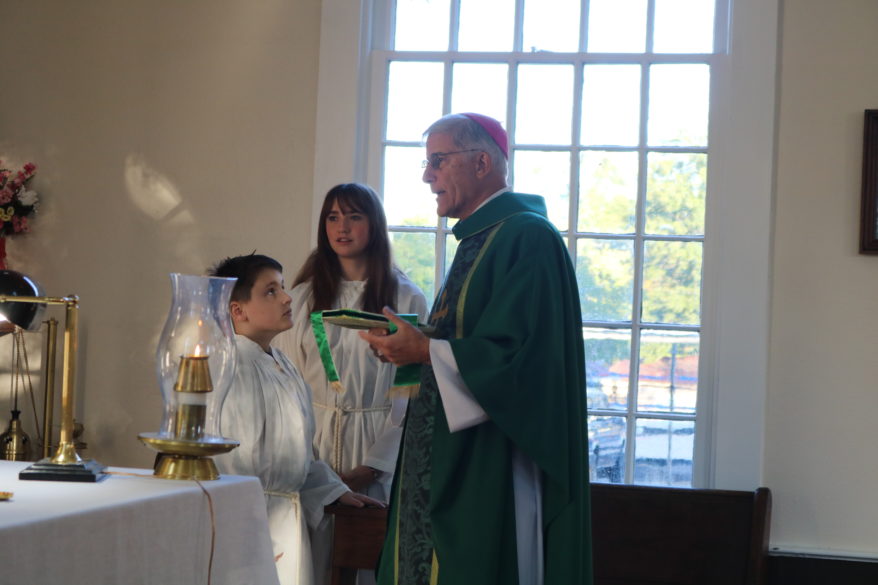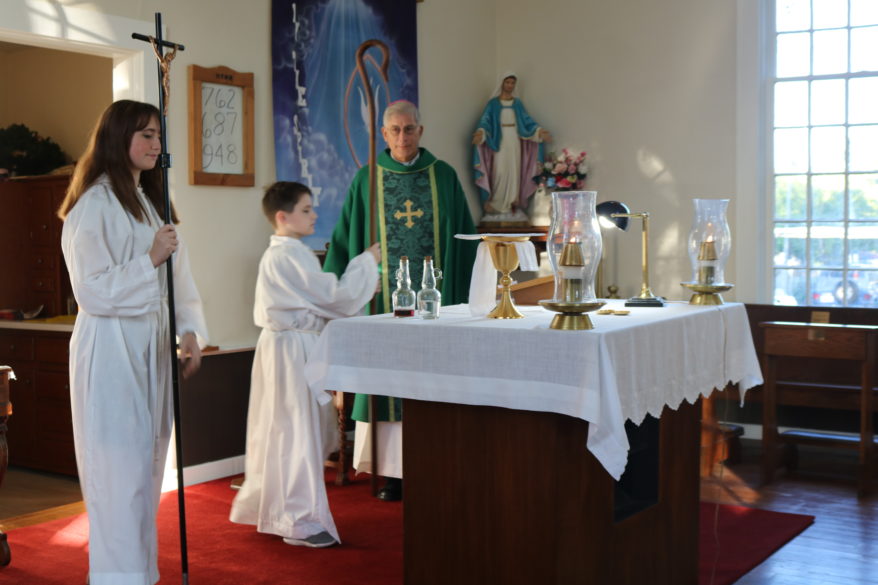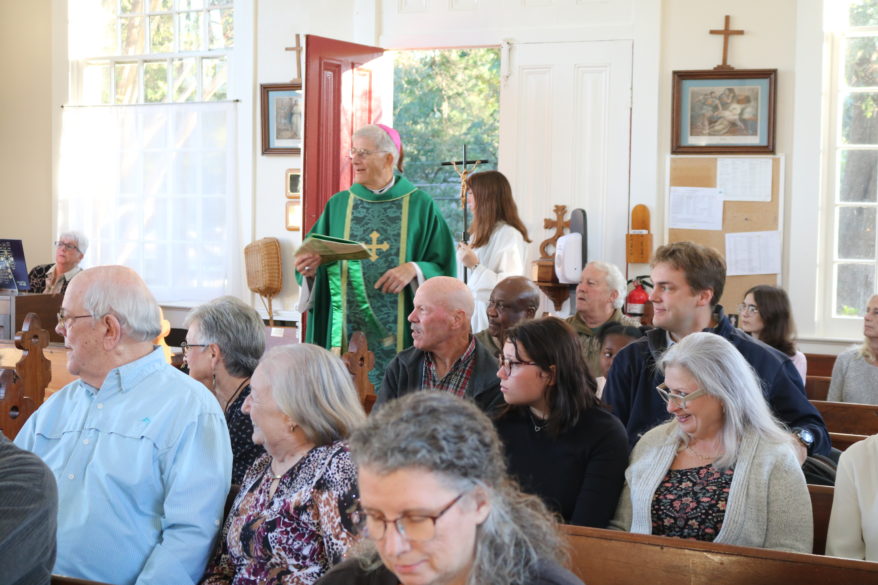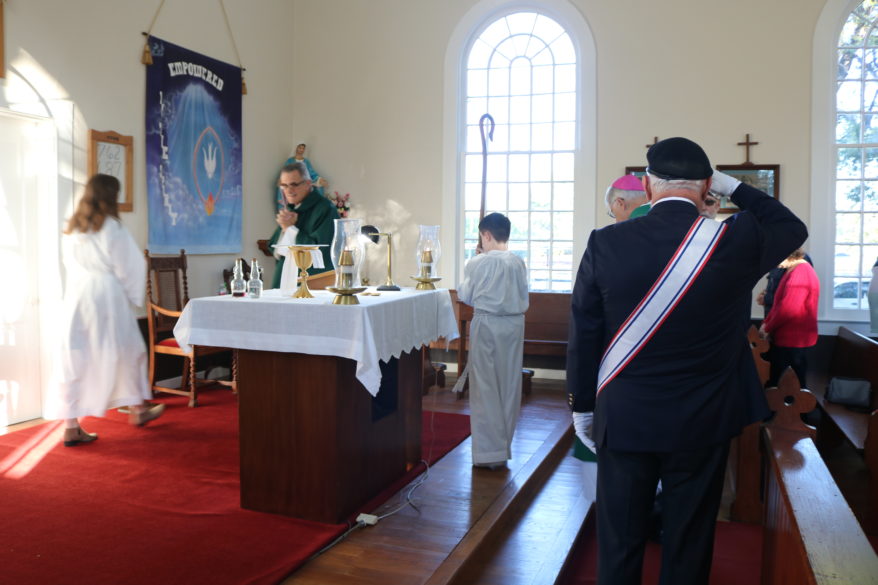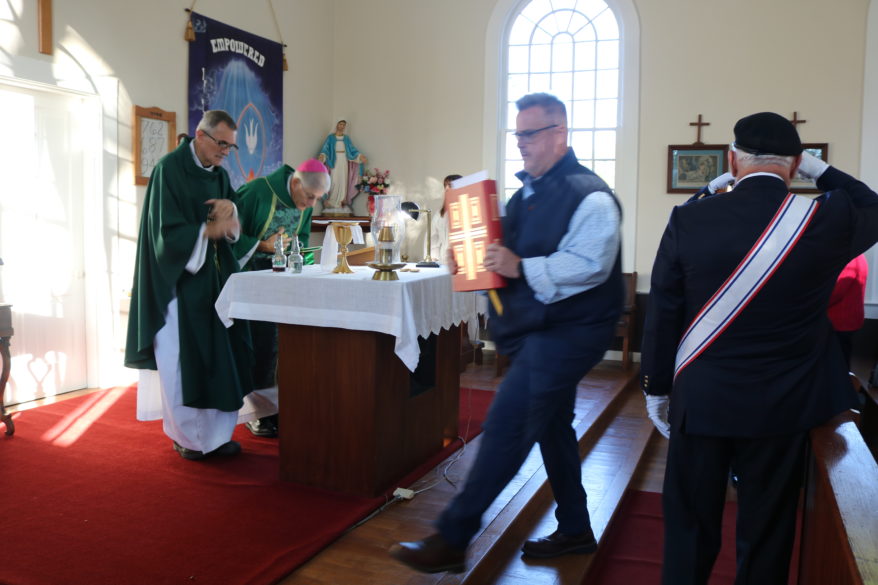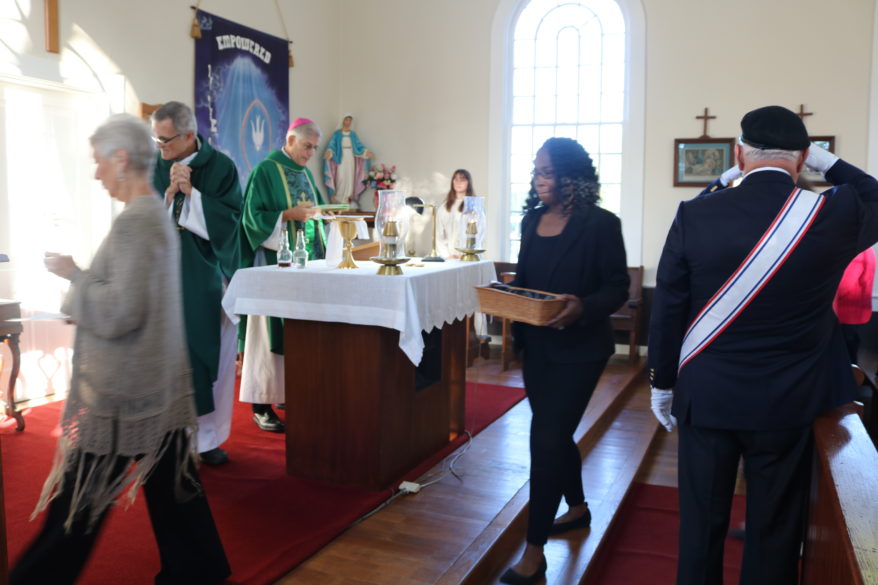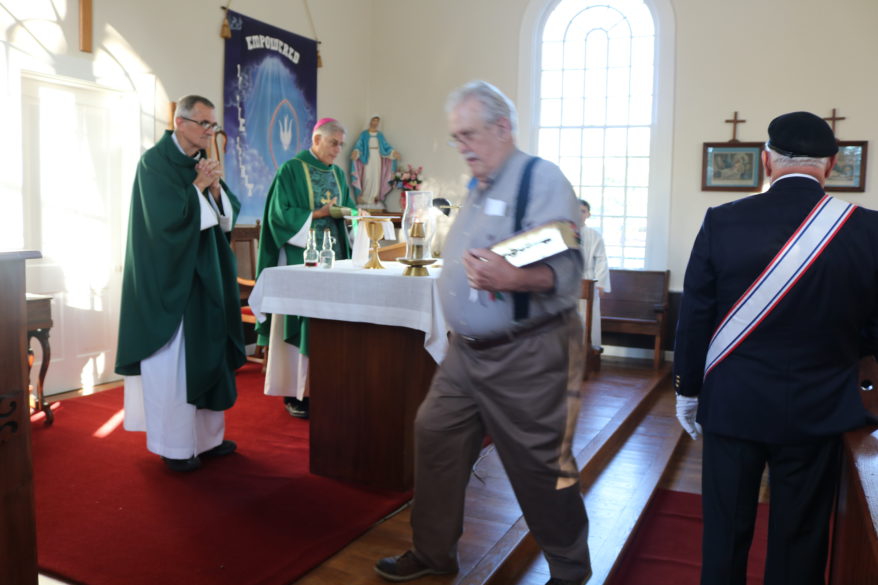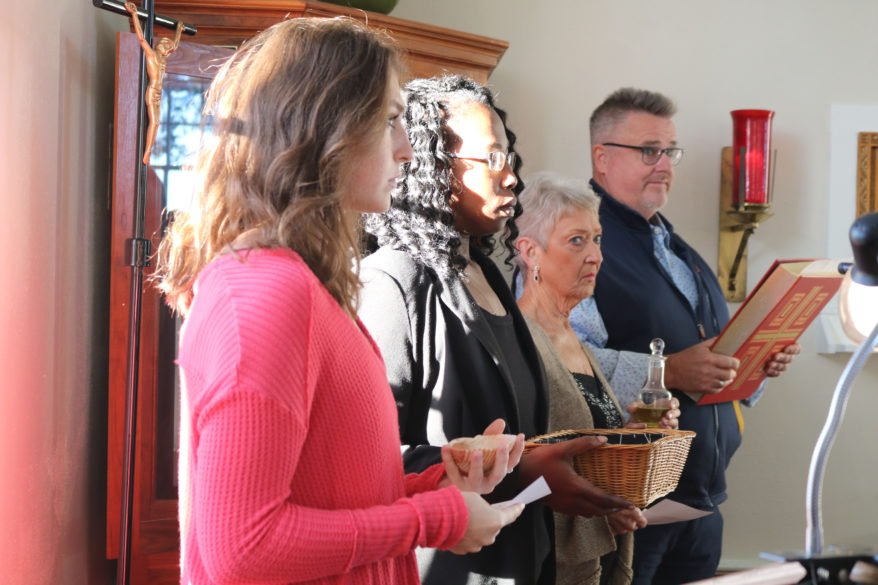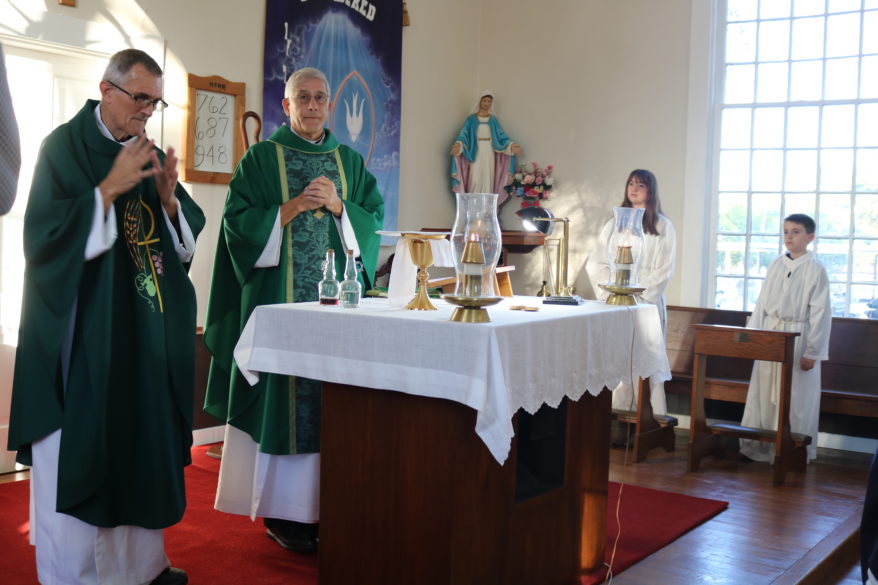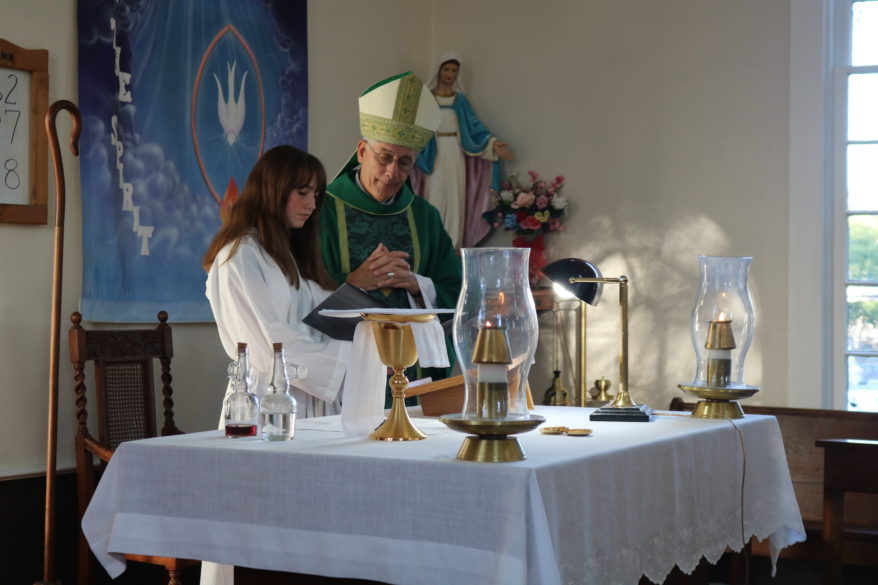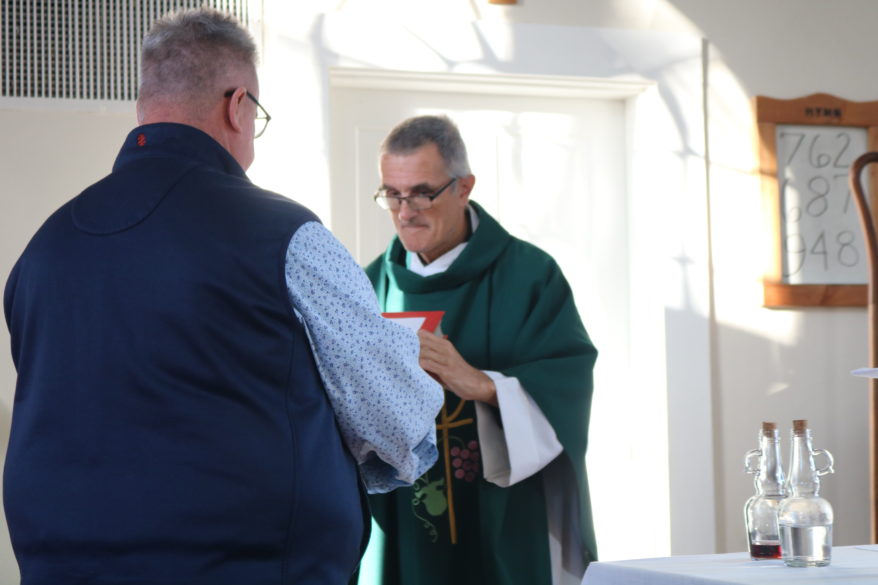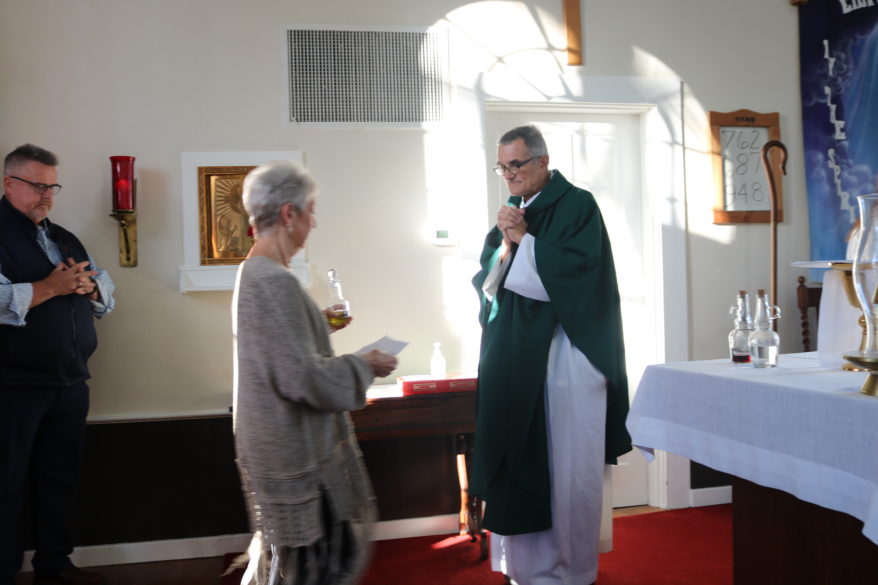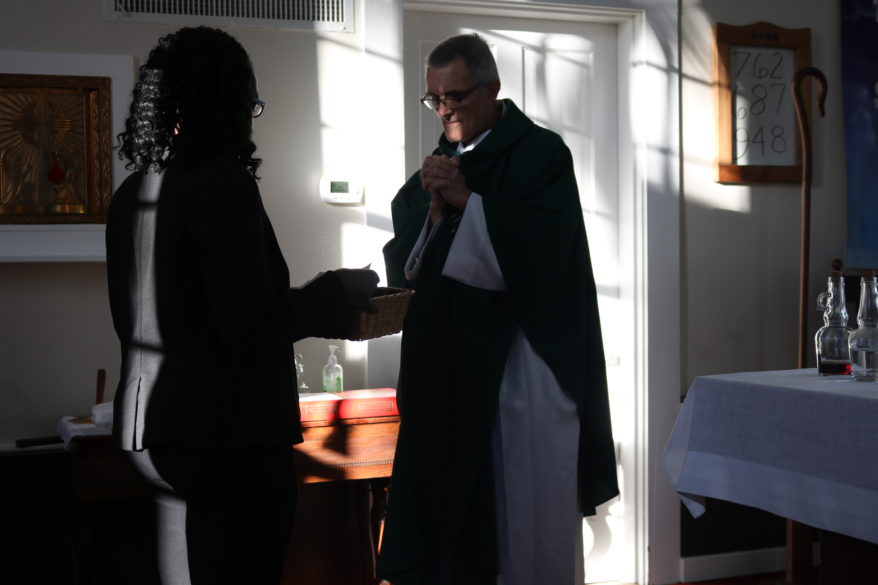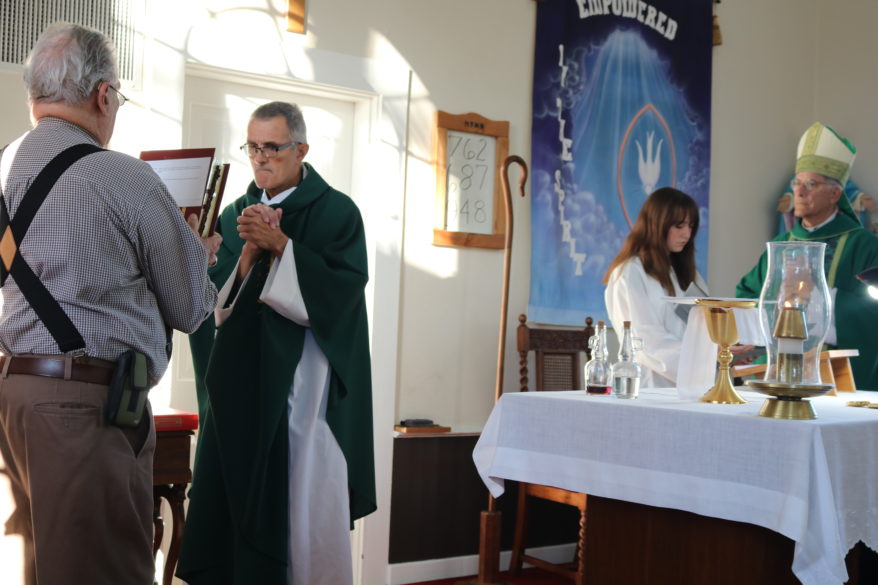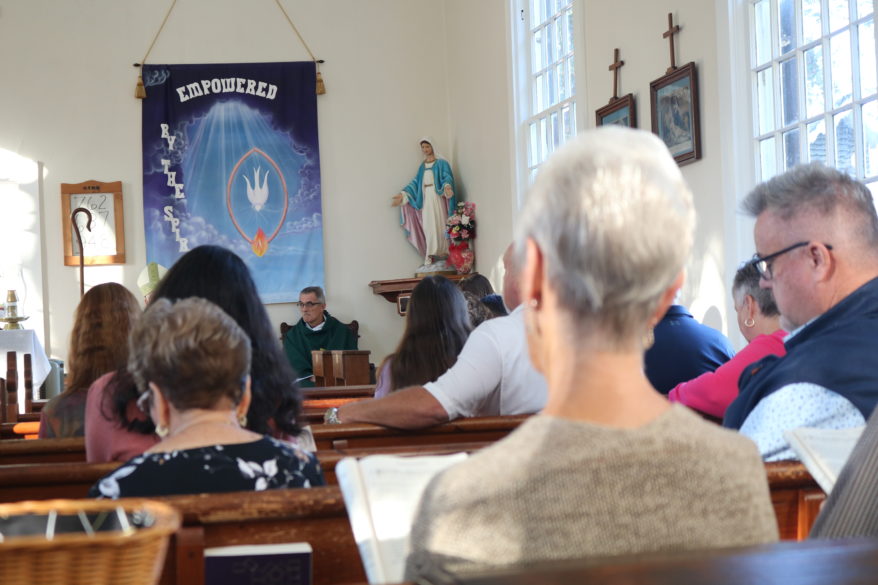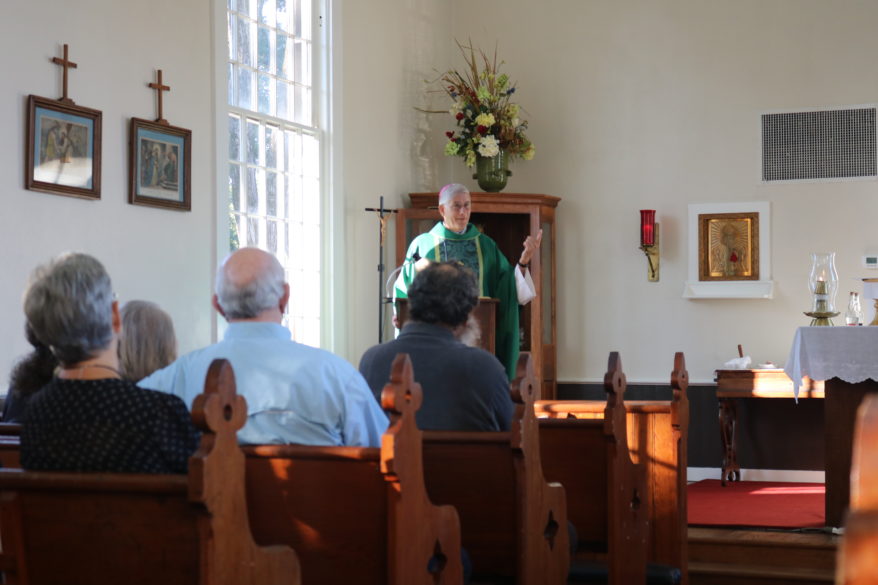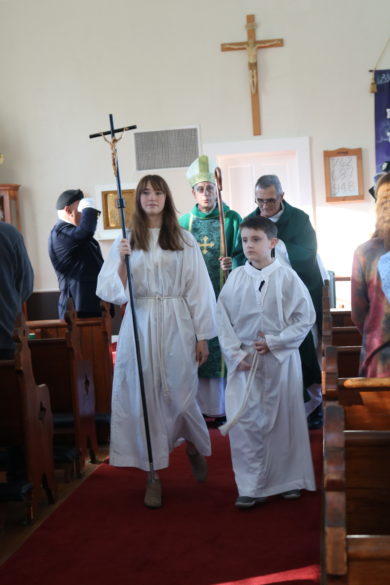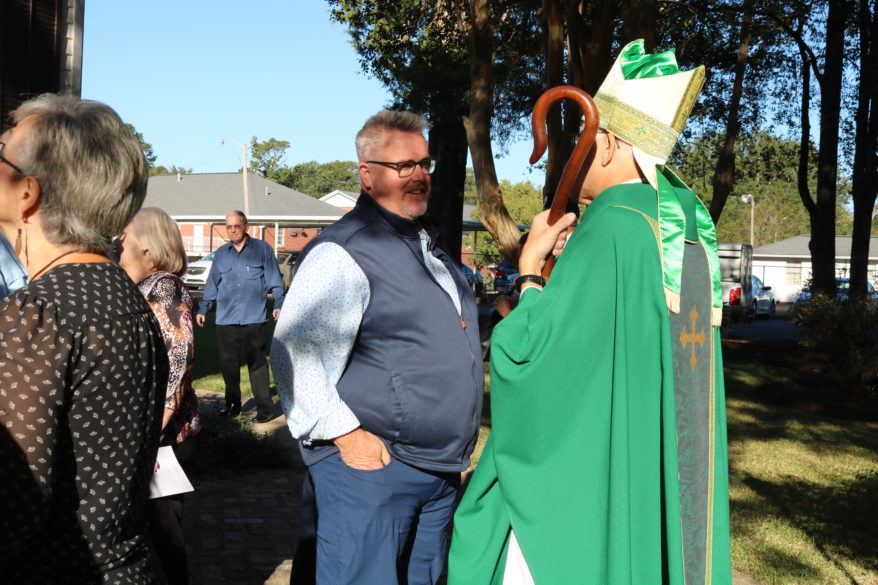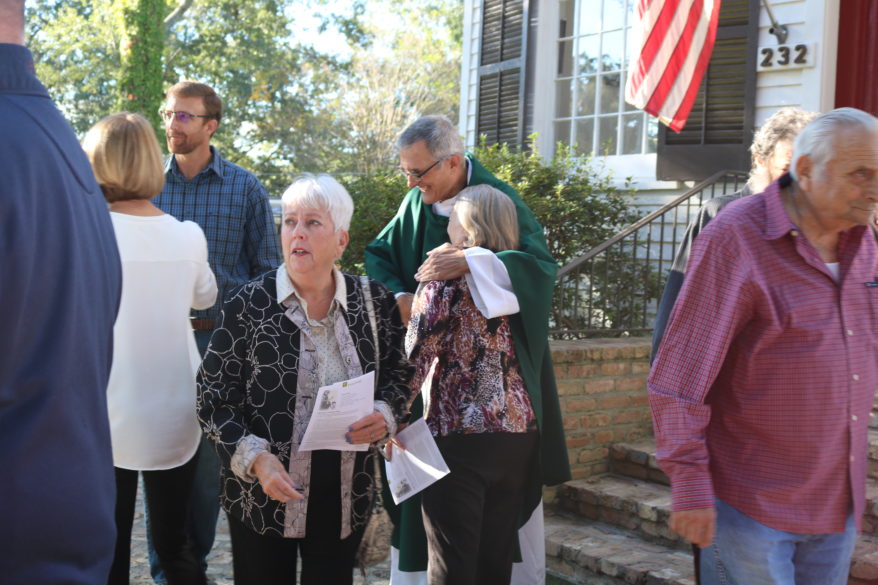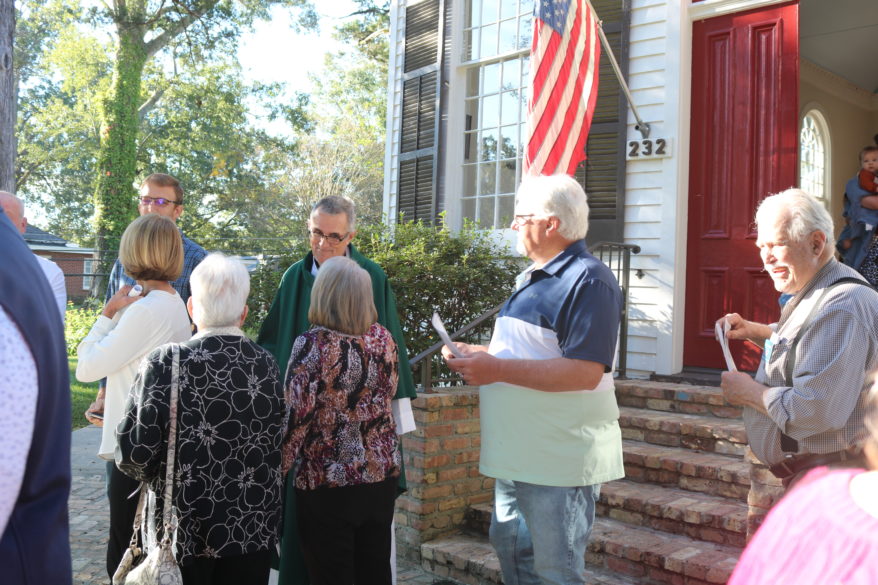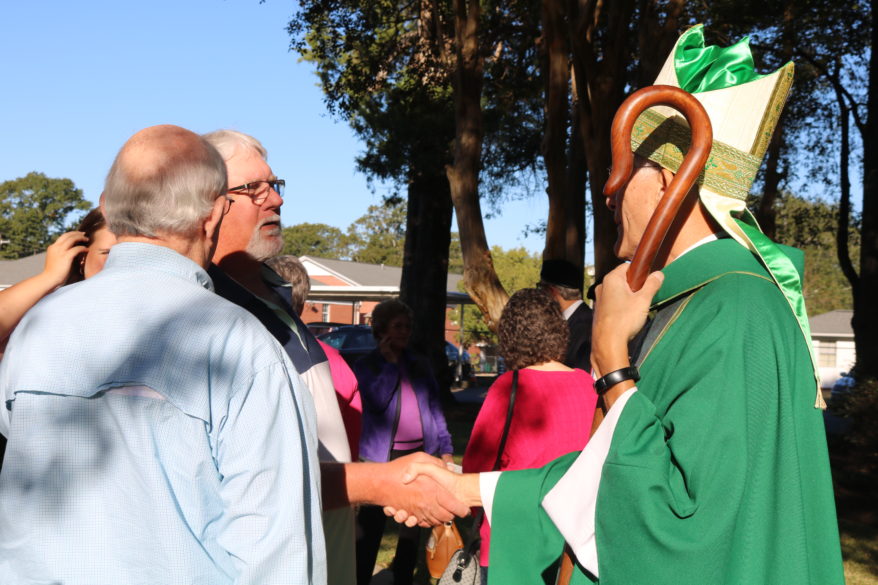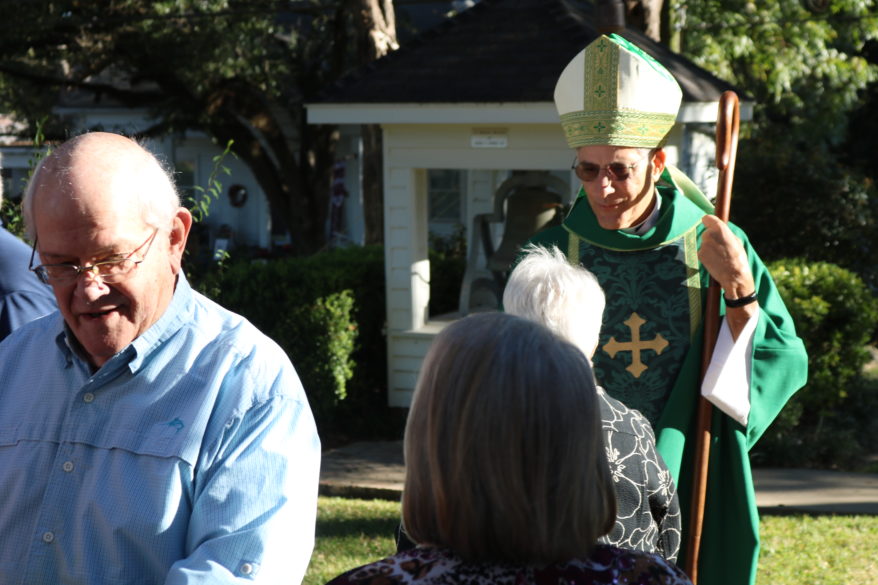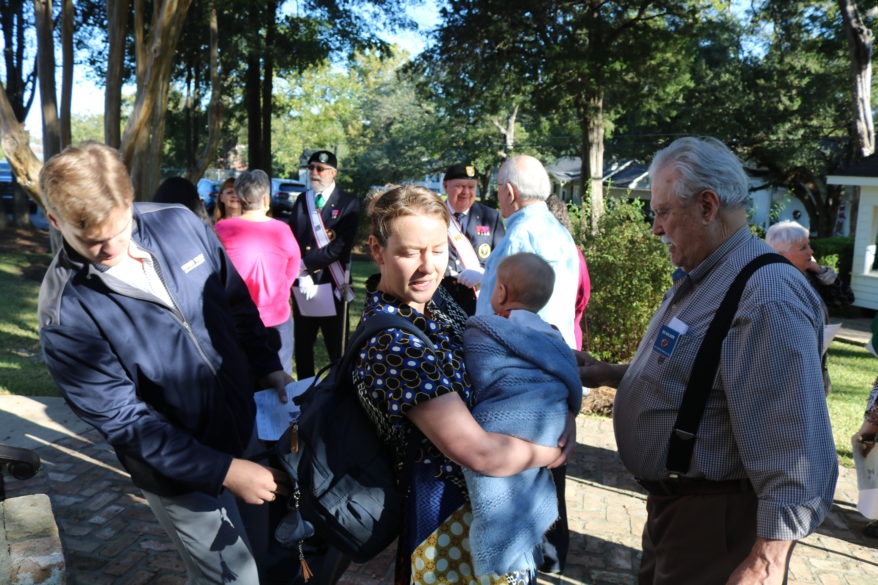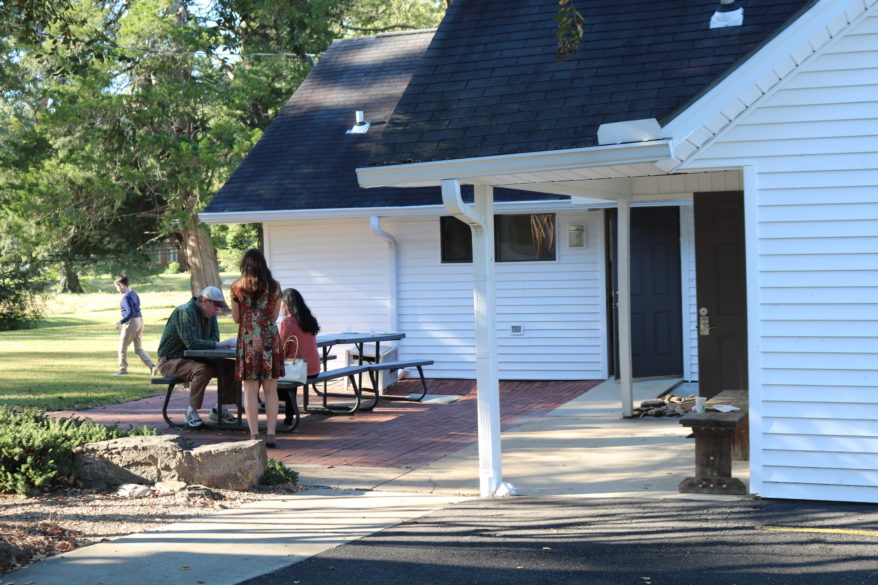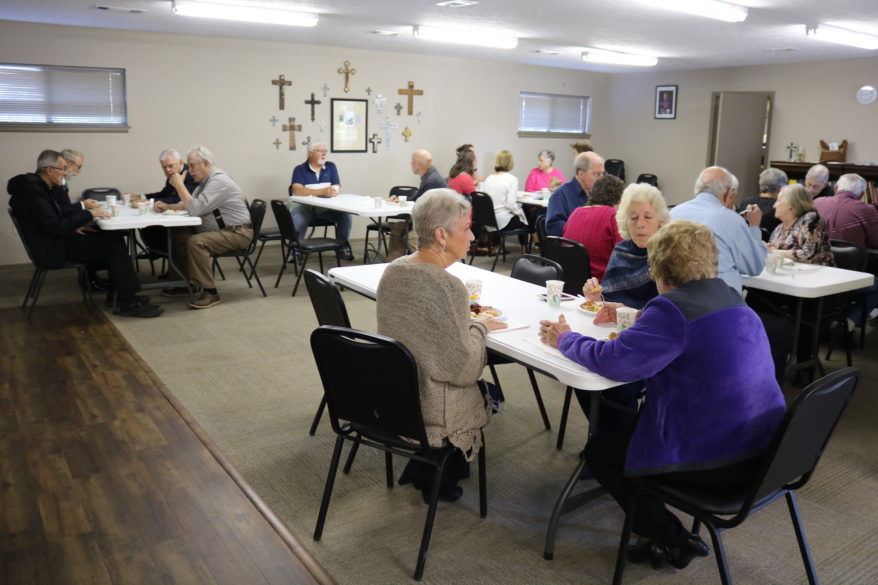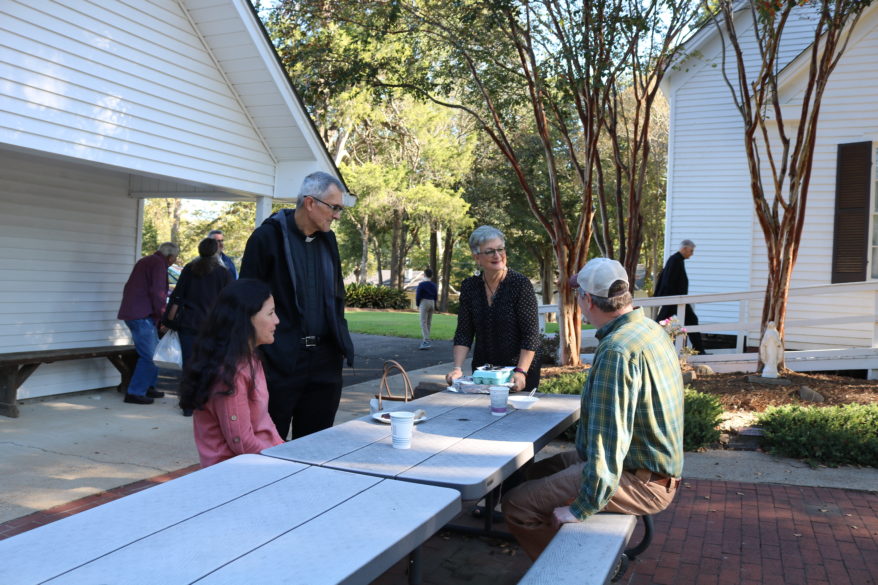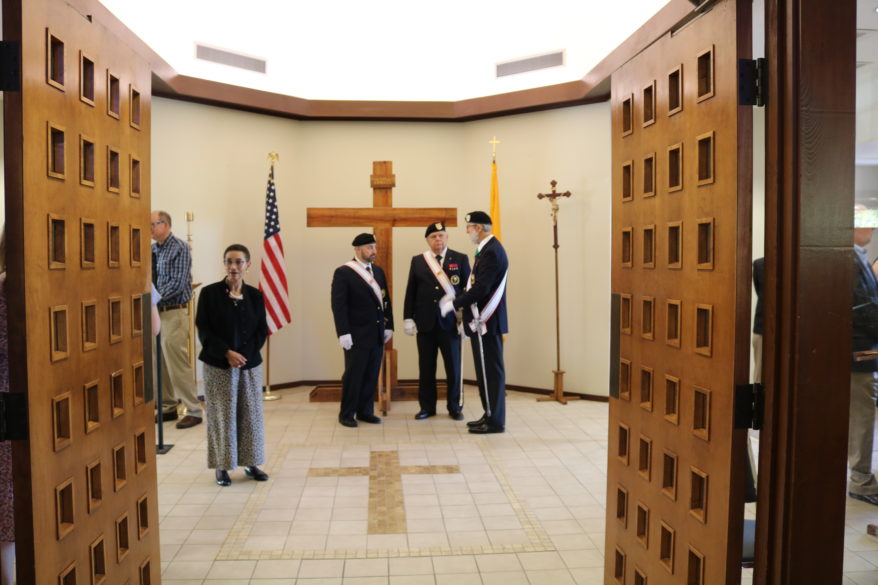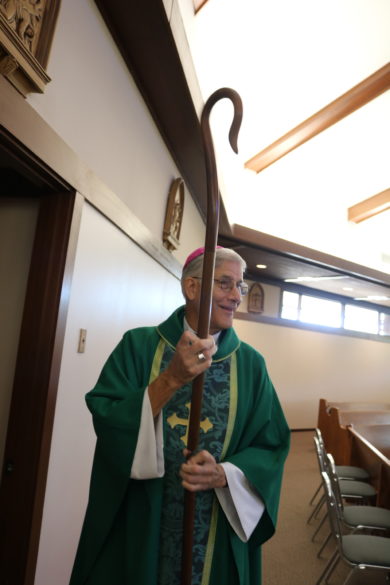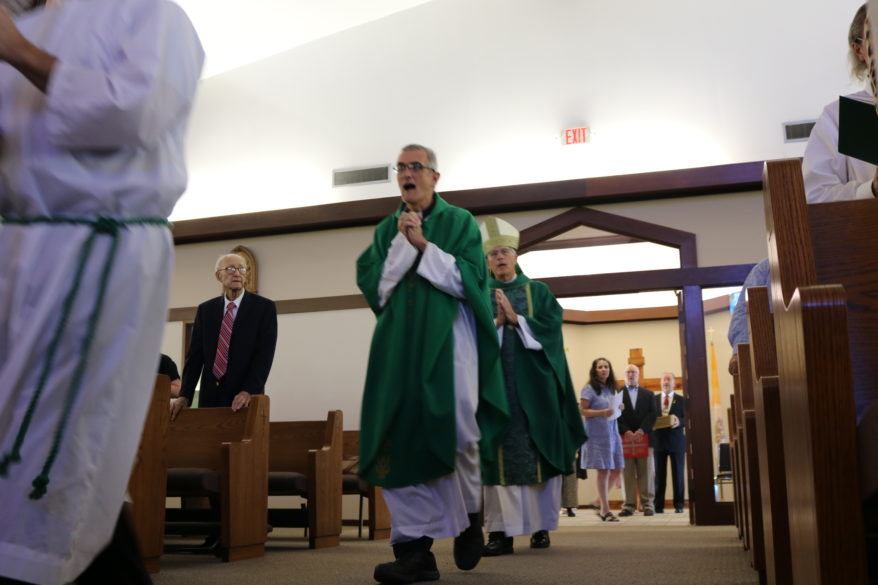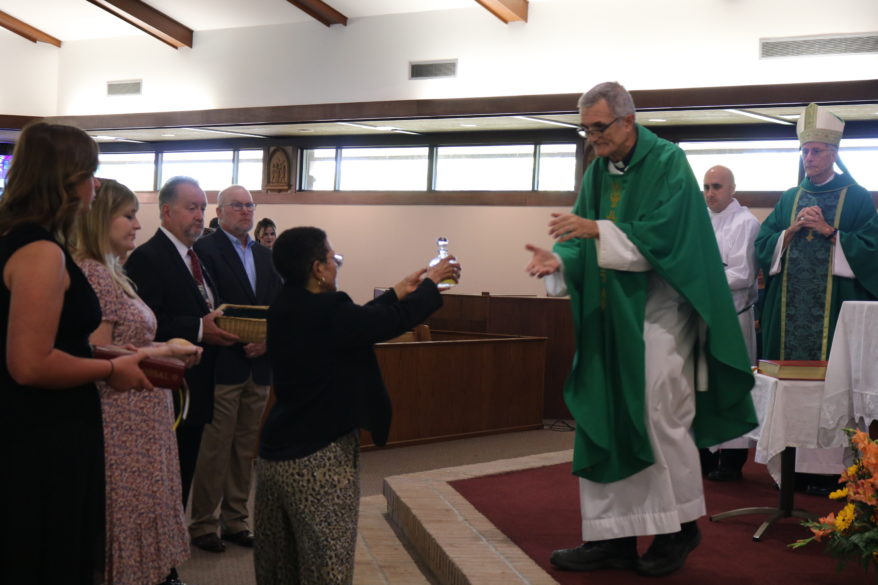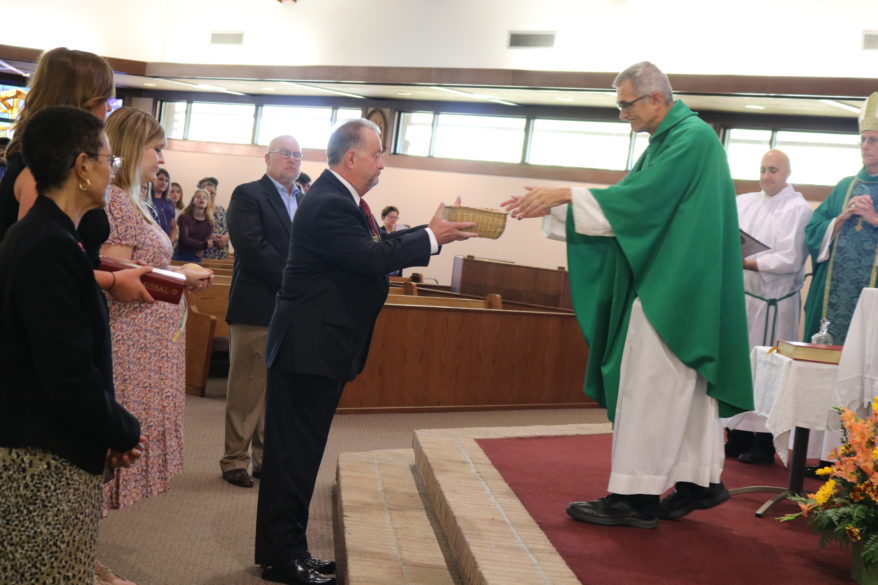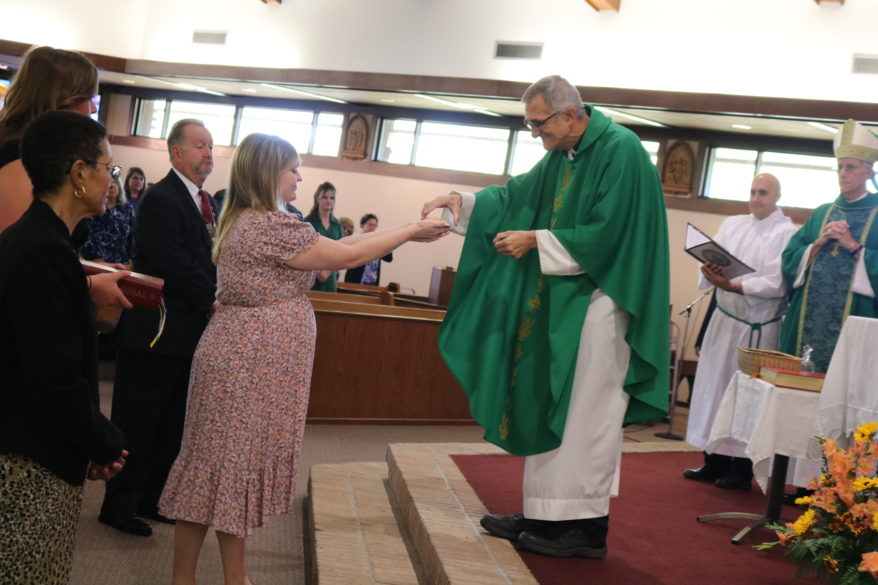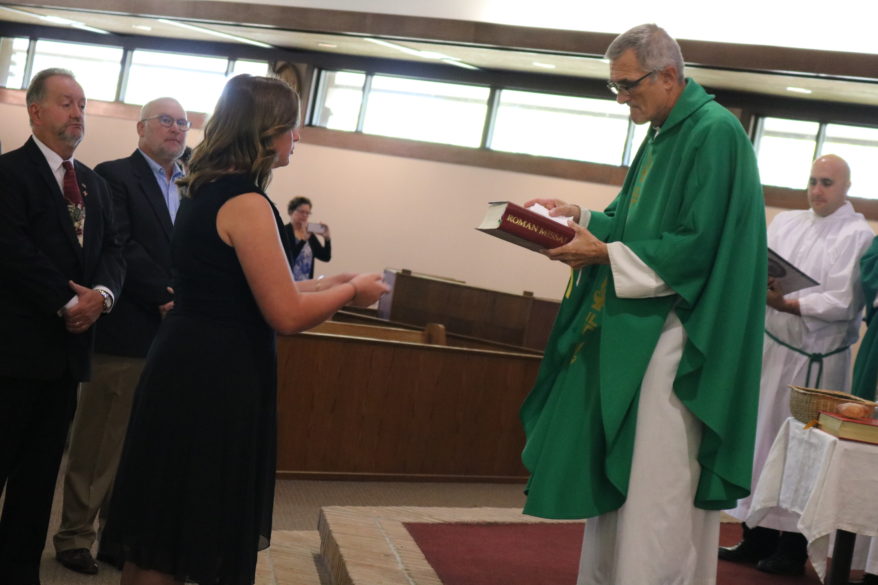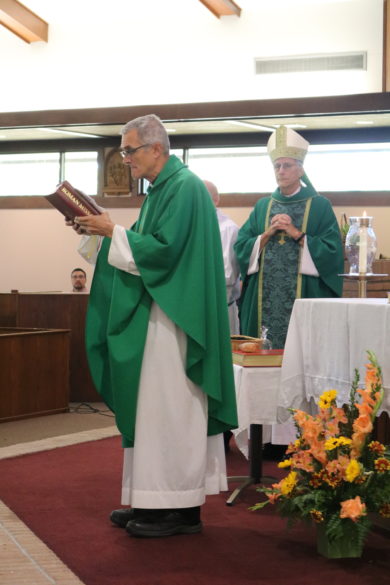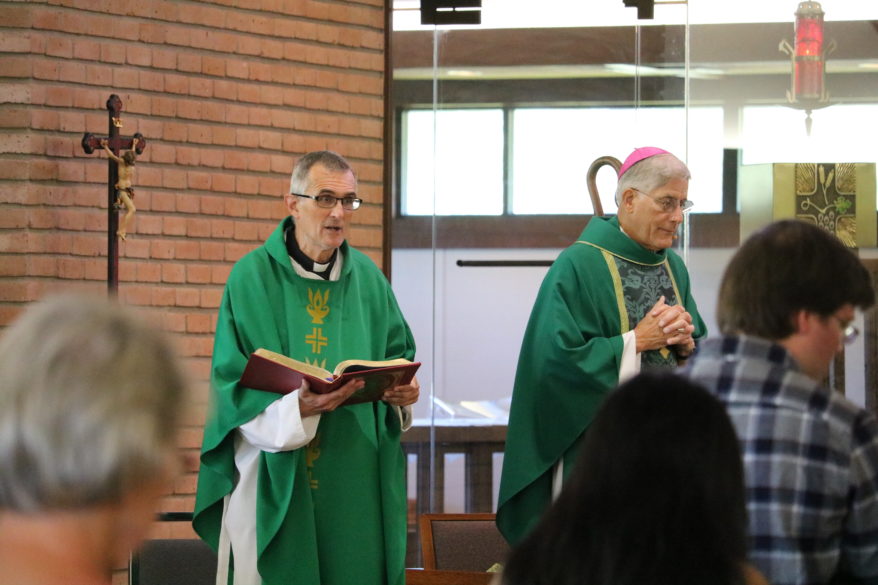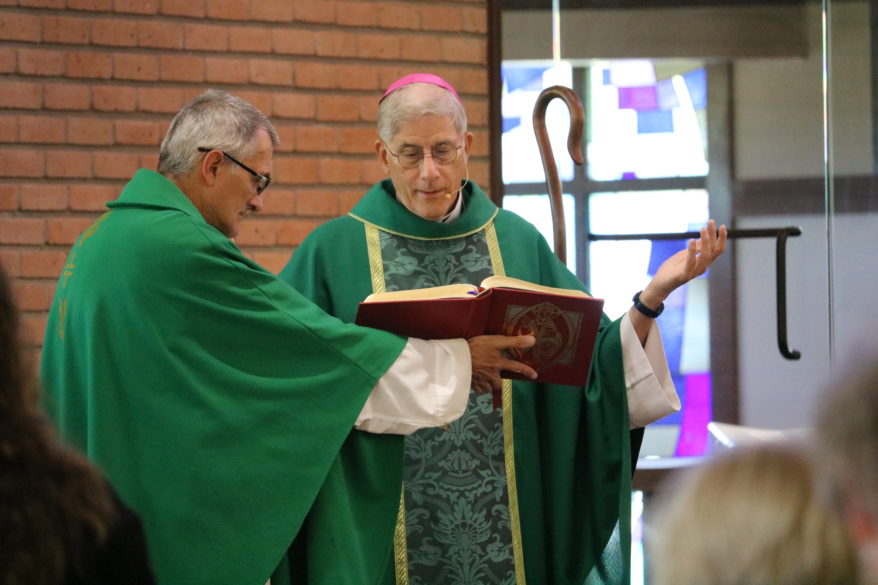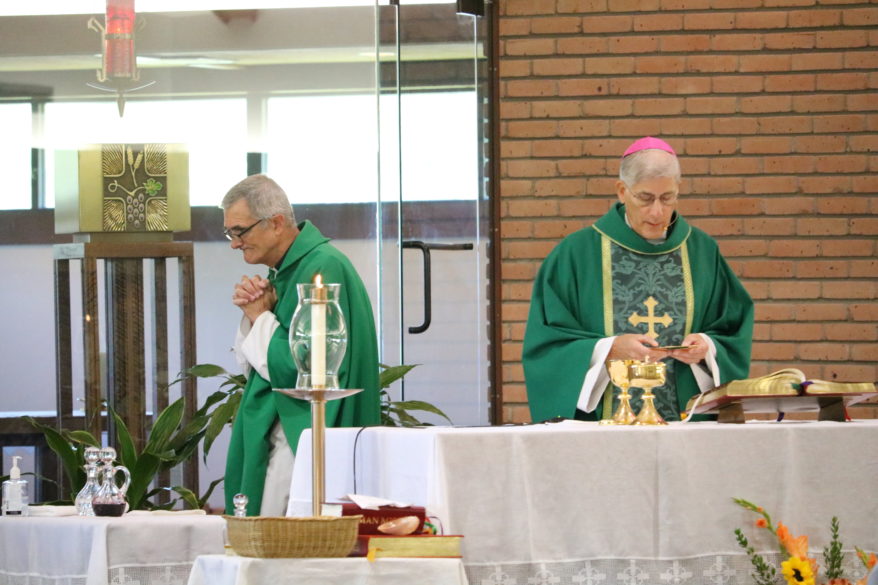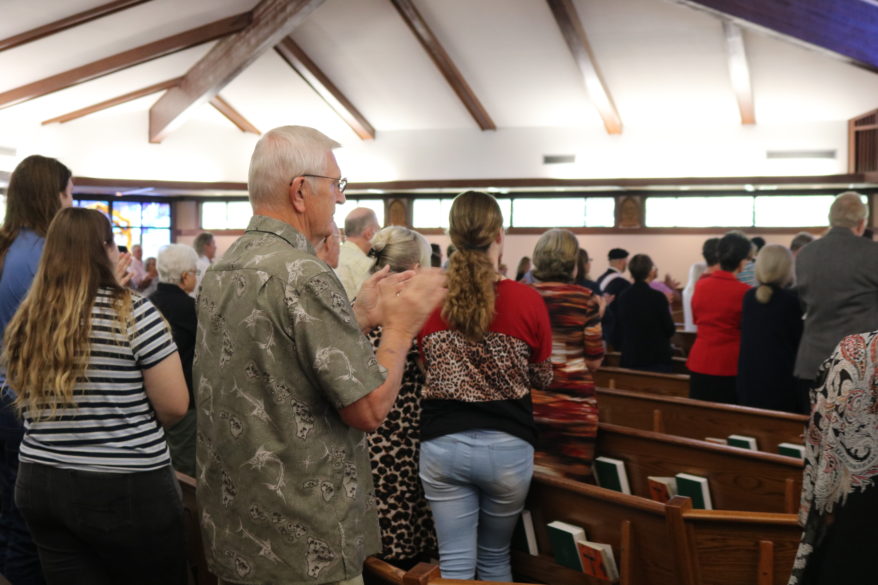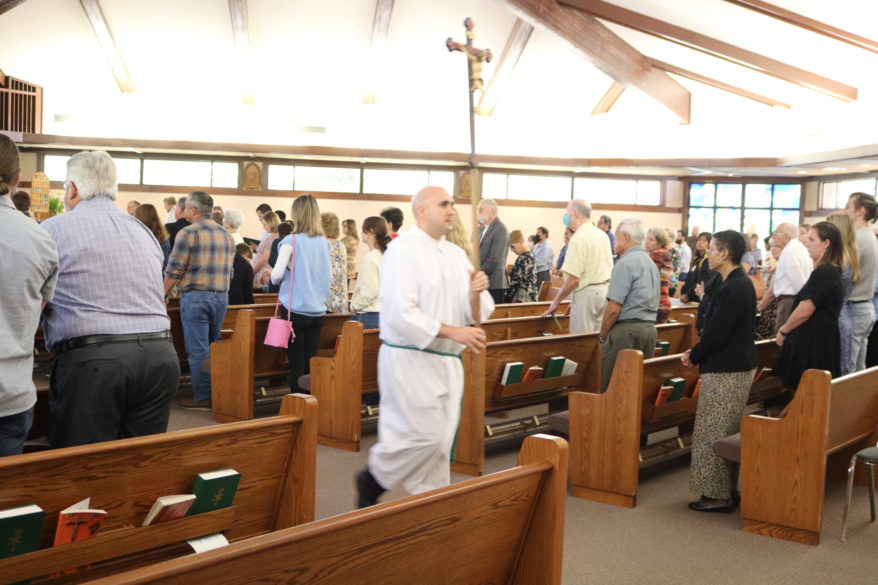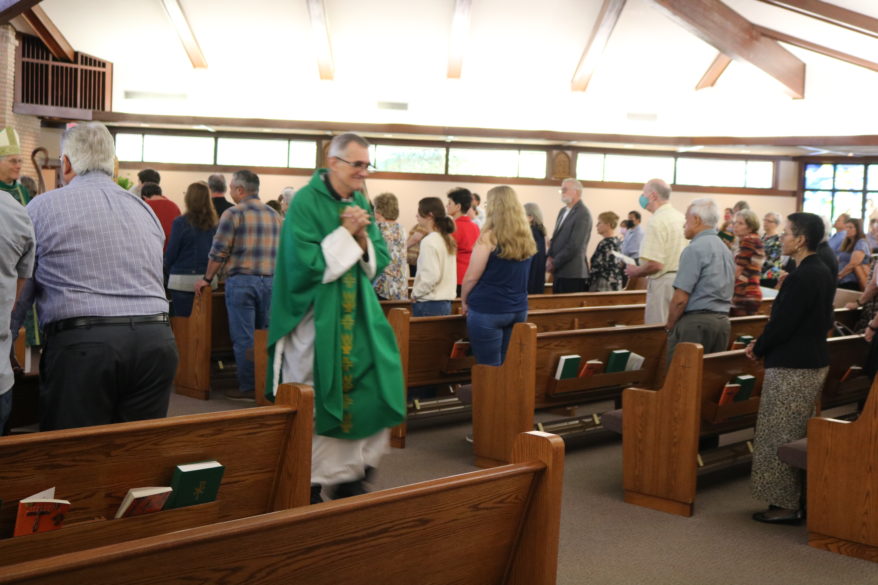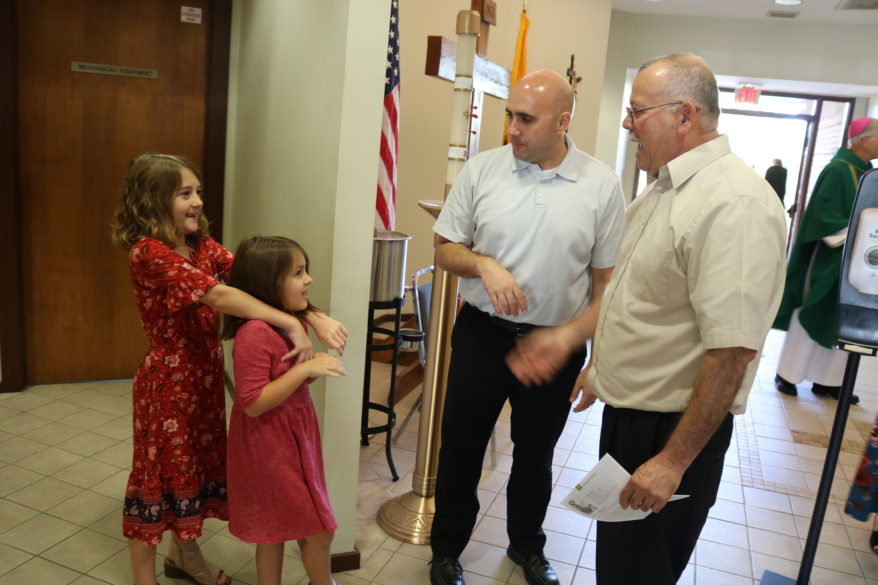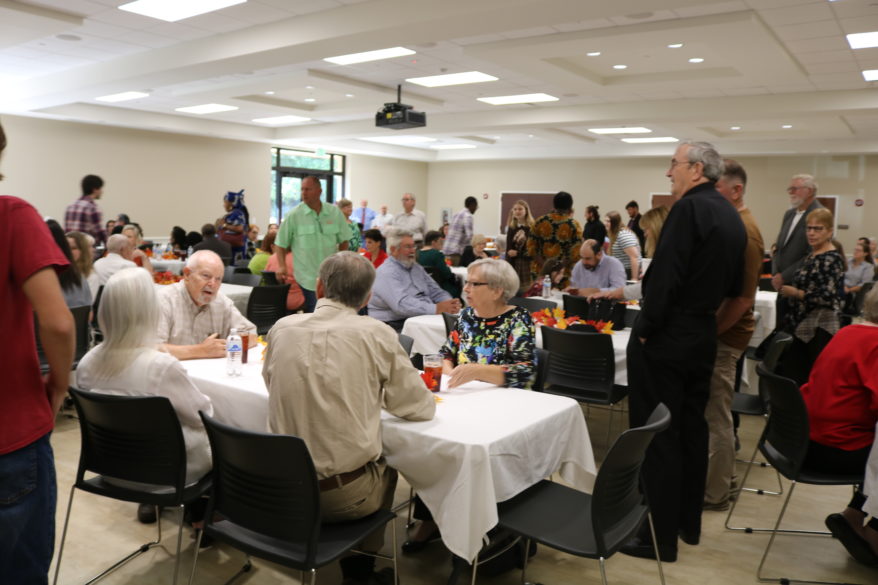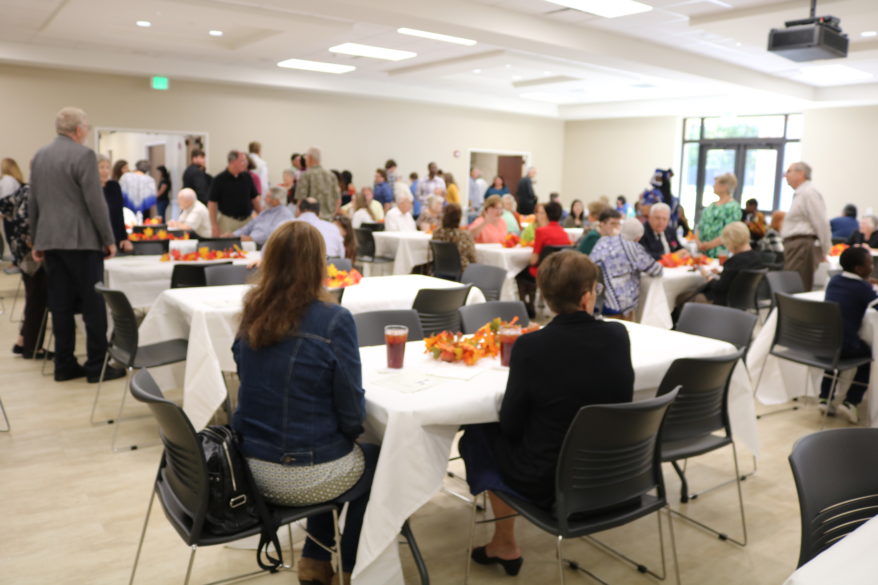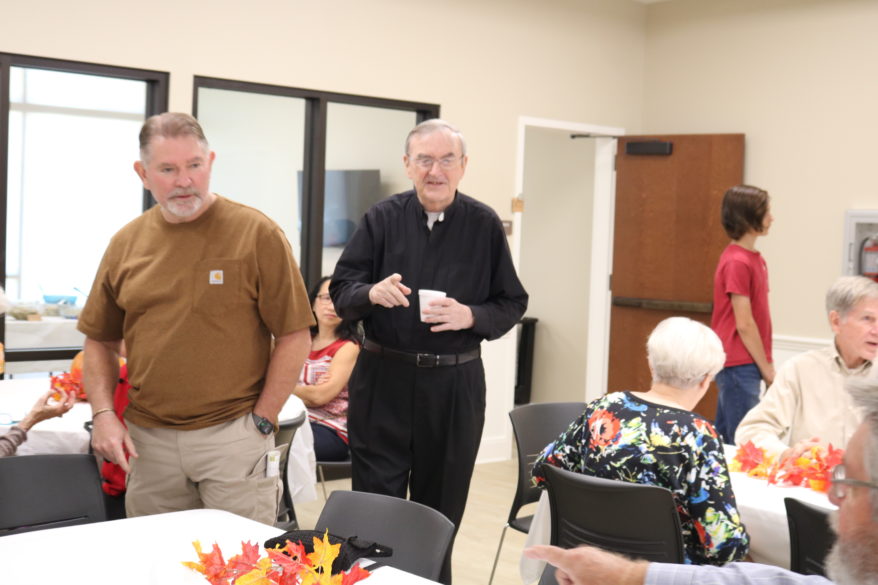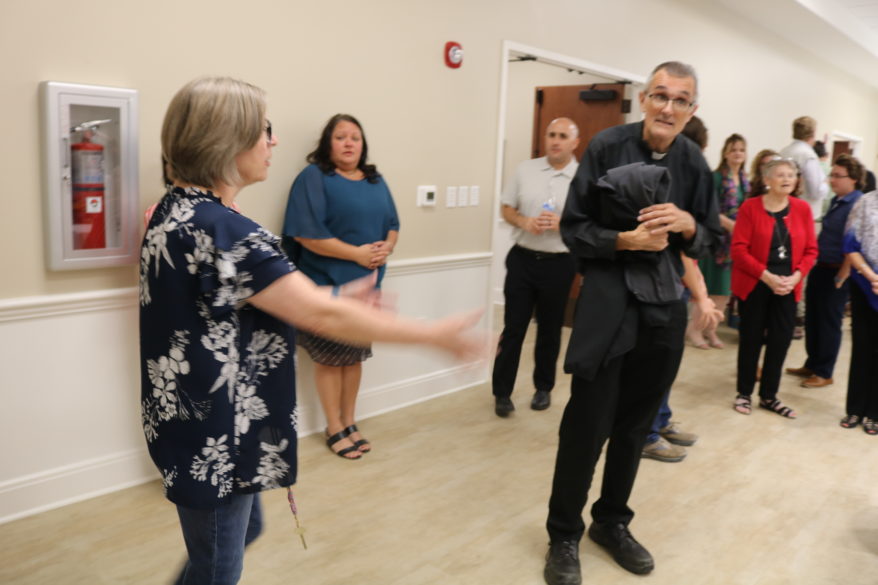SPIRITUAL ENRICHMENT
DIOCESE/GLUCKSTADT Diocesan Eucharistic Congress, Friday, Oct. 28-29 at St. Joseph Church in Gluckstadt. Featured speaker Father Ajani Gibson of the Archdiocese of New Orleans. This will be an evening and morning of prayer, adoration, spiritual talks and Mass. Details: visit https://jacksondiocese.org/calendar-event/diocesan-eucharistic-congress/.
GREENWOOD Locus Benedictus, “The Prison, the Warden and the Key to Freedom” event, Saturday, Nov. 5, 9 a.m. to 4 p.m. Featured presenters: “Mercy Beaucoup” – Cindy Scardina, Ann Roshto and Lynn Mondt. All are welcome. Event is free with love offering taken. Details: sign up on facebook, eventbrite or call (662) 299-1232.
NATCHEZ St. Joseph Monastery, “Falling More in Love with Jesus” Day of Recollection with special guest, Noel Delery on Saturday, Oct. 22 from 10 a.m. to 3 p.m. Lunch provided. To view itinerary, visit www.saintjosephmonastery.com. Details: RSVP to (601) 653-0914 or email mon.saintjoseph@ive.org.
TUPELO St. James, Annual Men’s Retreat, Nov. 18-20 at St. Bernard Abbey in Cullman, Ala. Retreat leader is Father Ben Cameron of the Fathers of Mercy. Retreat begins Friday evening and ends Sunday morning. Enjoy this weekend of prayer, rest and fellowship. Cost: $130 if sharing a room or $205 for a private room. Registration includes two nights of lodging, all meals and snacks. Details: David at (662) 213-3742.
PARISH, FAMILY & SCHOOL EVENTS
COLUMBUS Annunciation, Loaves and Fishes Annual Supper Fundraiser, Thursday, Oct. 20 from 5-7 p.m. in the Activity Center. Tickets: $15. Details: church office (662) 328-2927.
FLOWOOD St. Paul, MARC Prison Ministry Workshop, Saturday, Oct. 29 from 8:30 a.m. to 2 p.m. Guests will hear success stories of former inmates, meet volunteers who are doing the work and learn more about areas of need. Lunch provided. Must RSVP by Oct. 19 at https://www.marcreentry.org/. Details: on website or call/text (601) 521-1331.
HOLY LAND Trip with Father Mark Shoffner to the Holy Land, June 30 – July 9, 2023. If you’ve wanted to go walk in the footsteps of Jesus and see the places of the Scriptures come to life, then now is the time to sign up. An exceptional moment to see Jesus in a whole new experience. Ten days, airfare, hotels, meals, tour guide, daily Masses in the Holy. Sites are all included in the cost. Details: https://www.catholicjourneys.com/shoffner/.
IRELAND Trip with Father Tommy Conway and Father Gerry Hurley, June 12-22, 2023. Details: visit https://bit.ly/IrelandwithFrTommyandGerry or call church office at (601) 992-9547.
JACKSON 42nd annual Squat & Gobble, Thursday, Nov. 10 at the Country Club of Jackson. All proceeds help victims of sex trafficking and domestic violence. Details: visit www.friendsforacause.com.
MADISON St. Francis, Homegrown Harvest Vocations Fundraiser, Saturday, Oct. 29 from 6-9 p.m. Details: visit https://bit.ly/HGHarvest2022.
MCCOMB St. Alphonsus, 100th Jubilee Celebration, Sunday Oct. 30. Musical program at 3:00 p.m.; Mass at 3:30 p.m. with fellowship meal following. Details: church office (601) 684-5648.
MERIDIAN St. Patrick, 23rd annual Variety Show, Dinner and Fashion Show, Saturday, Nov. 5 in the Family Life Center. Tickets on sale at school or parish office. Reserved $25; adults $10; and children 13 and under $5. Details: church office (601) 693-1321.
NATCHEZ St. Mary Basilica, Annual Cemetery Procession at Natchez City Cemetery on Sunday, Nov. 6 at 2 p.m. Procession begins at the Old Catholic Plot 1. Participants recite rosary to honor burials prior to 1861 as they process to Catholic Hill in the rear of the cemetery. All adults and youth are invited to join. Details: church office (601) 445-5616.
SOUTHAVEN Christ the King, Pumpkin Patch Fundraiser, through Sunday, Oct. 30 from 11-7 p.m. sponsored by the Knights of Columbus Council #7120 (open at 12 p.m. on Sundays). Various sizes available, including specialty pumpkins. Details: church office (662) 342-1073.
TUPELO St. James, Rummage Sale, Saturday, Nov. 5 from 7:30-11a.m. in Shelton Hall. Details: call Kathy at (662) 322-2556.
YOUTH EVENTS
DIOCESE Two scholarships are available to college students in the Diocese of Jackson. The Bishop Brunini Memorial Scholarship was established to be used specifically for tuition assistance for undergraduate or advanced studies at any accredited Catholic college or university. There are no specific restrictions for the field of study.
The Stella Schmidt Memorial Scholarship was established to be used specifically for tuition assistance for advanced studies in theology or religious education at Spring Hill College, Mobile, Alabama.
Full and part-time graduate students are eligible to apply for the scholarship. If the recipient is currently enrolled in the Department of Faith Formation’s Pastoral Ministries Program and receives tuition assistance from the diocese and their school or parish, scholarship money can be used to offset the amount of tuition paid out-of-pocket by the individual.
The specific annual amount of the scholarships will be determined by the interest shown. Applications are due to the Department of Faith Formation by Dec. 1. For more information, please contact Fran Lavelle, director of the department of Faith Formation by email at fran.lavelle@jacksondiocese.org.
DIOCESE SEARCH Retreat – For Teens, By Teen, Jan. 13-15, 2023 at Camp Wesley Pines in Gallman. Details: email abbey.schuhmann@jacksondiocese.org.
GREENVILLE St. Joseph, Saints Mass, Sunday, Oct. 30 at 9 a.m. Begins with Mass led by youth. After Mass, brunch held in parish hall. Be sure to have children dress as their favorite saint. Rosary and balloon rosary release after brunch. Details: church office (662) 335-5251.
JACKSON St. Richard, An Evening with Moms and Daughters with Kari Kampakis, Sunday, Oct. 23 at 6:30 p.m. Enjoy an evening with author and speaker Kari Kampakis as she shares Scripture-based wisdom for girls (seventh grade and up) and their mothers, covering topics from friendships, identity, social media, dating and more. Tickets $5 each or max $20 per family. Purchase at https://bit.ly/STRKariEvent – Register by Oct. 21. Details: church office (601) 366-2335.
MONTGOMERY, Ala. Catholic Heart Workcamp 2023, July 23-29. For those entering eighth grade and up. Details: visit https://heartworkcamp.com/
SAVE THE DATE
DIOCESE Save the date: #iGiveCatholic on Giving Tuesday Nov. 28. Join Catholics in this nation-wide day of giving.
JACKSON St. Richard School, Krewe de Cardinal set for Feb. 10. Call for tickets and sponsorship opportunities. Details: school office (601) 366-1157.
MADISON St. Anthony School, Starry Night Gala, Friday, Dec. 9. Details: school office (601) 607-7054.
MEMPHIS 40 Days for Life, Vigil at Outside Choices, 1203 Poplar Ave. from 6 a.m. to 6 p.m. daily through Nov. 6. Details: email info@memphiscoalitionforlife.org or visit 40daysforlife.com/memphis.
OLIVE BRANCH Queen of Peace, Tie Dye for Jesus, Sunday Nov. 13 at 3 p.m. All are welcome. Event begins with an appetizer/dessert potluck. Sign up in the Commons area with your name and shirt size. Donations welcome. Details: church office (662) 895-5007.
RIPLEY St. Matthew, 1st annual Christmas Bazaar, Nov. 18 and 19. Crafters wanted: tables available for $30. Begin making your crafts or preparing a food booth now. Details: Call Geraldine at (216) 867-8007.
TRUNK OR TREATS/FALL FESTIVALS
BROOKHAVEN St. Francis, Trunk or Treat and Fall Festival, Wednesday, Oct. 26. Details: church office (601) 833-1799.
CLARKSDALE St. Elizabeth, Trunk or Treat and Canned Food Drive, Sunday, Oct. 30 at 5 p.m. Come dressed in costume to trick-or-treat and win baked goods from the cake walk. Details: church office (662) 624-4301.
CLEVELAND Our Lady of Victories, Halloween Carnival, Sunday, Oct. 30 from 6-7:30 p.m. Details: church office (662) 846-6273.
COLUMBUS Fall Festival/Trunk-or-Treat by Annunciation, FUMC and St. Paul’s Episcopal, Sunday, Oct. 30 from 4-6 p.m. on College Street. Enjoy food, fun, games and costume contest. Details: church office (662) 328-2927.
FLOWOOD St. Paul, Trunk or Treat, Saturday, Oct. 22 at 6:30 p.m. Enjoy great food and games. Details: church office (601) 992-9547.
GLUCKSTADT St. Joseph, Reb Beans & Rice Dinner and Trick or Treat Activities, Sunday, Oct. 30 at 5:30 p.m. in the parish hall. Plates include Red Beans & Rice, bread and salad. Cost is $7 or hot dogs and chips for $3; dine-in or carry-out. Come enjoy dinner and let your children have fun in costumes with Trick or Treat activities for all. Details: church office (601) 856-2054.
GREENWOOD CYO Halloween Carnival/Spaghetti Supper, Monday, Oct. 24. Tickets $15; Spaghetti Supper available drive-through, carry-out or dine in beginning at 4:30 p.m. Carnival booths begin at 5:30 and bingo at 6:30 p.m. Details: church office (662) 453-3980.
GRENADA St. Peter, Fall Festival, Sunday, Oct. 30 from 4-6 p.m. in the family life center. Enjoy bingo, cake walk and chili supper. Bingo prizes and cakes needed for cake walk. Details: church office (662) 226-2490.
JACKSON St. Richard School, CardinalFest, Sunday, Oct. 23 from 11:30 a.m. until 2 p.m. Enjoy games for the kids and food and music for the whole family. Admission fee is $20 and includes meal, unlimited games, petting zoo and cake walk ticket. Details: school office (601) 366-1157.
MADISON St. Joseph School, Trunk or Treat, Thursday, Oct. 27 from 5-6:30 p.m. for ages under 12. Details: school office (601) 898-4800.
MCCOMB St. Alphonsus, Treats in the School Yard event, Wednesday, Oct. 26. Details: church office (601) 684-5648.
MERIDIAN St. Patrick, Halloween Carnival, Saturday, Oct. 22 from 6:30-9:30 p.m. at the Family Life Center. Enjoy games, haunted house and more. Details: church office (601) 693-1321.
NATCHEZ St. Mary Basilica, Trunk or Treat, Thursday, Oct. 27 at 6 p.m. Open to families and children through fourth grade. Details: church office (662) 445-5616.
OLIVE BRANCH Queen of Peace, Halloween Family Bash/Trunk or Treat, Saturday, Oct. 22 at 6 p.m. Costume contest, trunk decorating contest, bonfire, food, games and more. Details: church office (662) 895-5007.
PHILADELPHIA Holy Rosary, Trunk or Treat, Sunday, Oct. 30. from 4:30-7 p.m. at the parish hall. Costume contest, pumpkin carving contest, mummy wrap contest. Food and treat bags for all children and youth. Details: parish hall (601) 656 2800.
OLIVE BRANCH Queen of Peace, Trunk or Treat, Saturday, Oct. 22. 6 p.m. Details: church office (662) 895-5007.
SOUTHAVEN Christ the King, Fall Festival, Saturday, Oct. 8 from 10 a.m. to 5 p.m. Enjoy international food, basket raffle, silent auction, entertainment and more. Details: church office (662) 342-1073.
TUPELO St. James, Fall Fest, Wednesday, Oct. 26 from 5-8 p.m. Enjoy trunk or treat, carnival games, cake walk and more. BBQ available for $10/plate. Dress as your favorite saint for the saint procession. Details: church office (662) 842-4881.
YAZOO CITY St. Mary, Witch Way Yazoo. St. Mary will participate in the event trunk-or-treat on Saturday, Oct. 29.
St. Mary, All Souls/All Saints Party, Sunday, Oct. 30 from 11:30 am. to 1 p.m. in the parish hall. Details: church office (662) 746-1680.
VICKSBURG Catholic Schools, Spooky Sprint 5k run/walk, 1 mile fun run and carnival, Oct. 29. Details: visit https://bit.ly/SpookySprint2022
